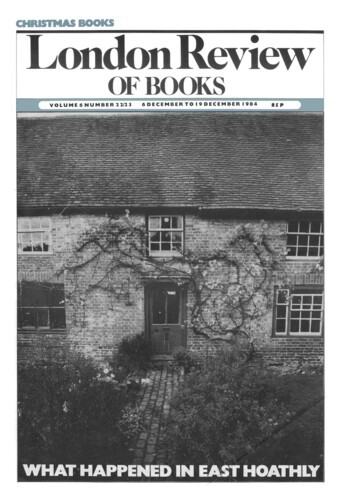Aid for the starving
Keith Griffin, 6 December 1984
William Shawcross’s The Quality of Mercy is a fascinating, detailed and moving study of the famine that struck Cambodia – or Kampuchea as it is now called – five years ago, and of the response of the rest of the world to the disaster that followed. The book can be read at several levels: as a memorial to a society that no longer exists, as a footnote to the history of the wars in Indochina and their aftermath, as the story of a large international relief operation, and as a cautionary tale of how humanitarian motives can become subverted by local and global political forces. Shawcross clearly has all these things in mind and more – the Jewish holocaust, for example, seems to haunt him – but from the beginning he underlines the message that ‘Cambodia has an importance beyond itself, because there in its fragile heart paraded, throughout the 1970s, many of the most frightful beasts that now stalk the world. Brutal civil war, super-power intervention carelessly conducted from afar, nationalism exaggerated into paranoid racism, fanatical and vengeful revolution, invasion, starvation and back to unobserved civil war without end.’’

